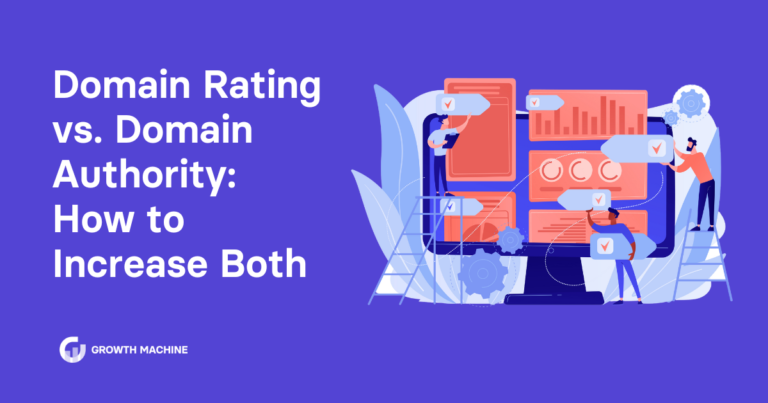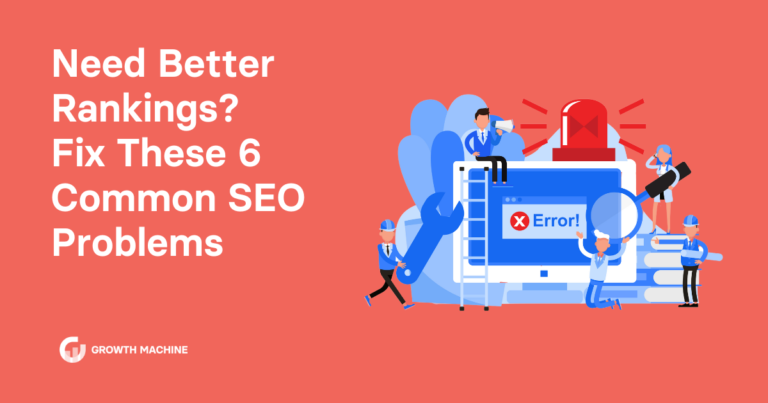Don’t Overthink It: These Are the Best WordPress Plugins
There are over 60,000 WordPress plugins, and countless articles from other content marketers on which plugins are “best” for search engine optimization. So when we decided to do our own article on our most recommended SEO WordPress plugins, we wanted to list the ones most crucial to your website’s success.
Keep in mind, these aren’t necessarily SEO tools that we think are the coolest or most clever. They’re just the ones you need for the most common use cases. If your goal is to find user-friendly tools to achieve maximum functionality, these are what you need the most for your WordPress dashboard.
When you’re just getting started, it’s most important to focus on what will enable you to publish well. For beginners, we recommend taking a couple of minutes to set up your basic SEO framework. By activating a handful of SEO plugins, you’ll make your site safer, faster, and more reliable in real time.
Whether you’re a small business owner just starting their own e-commerce site or a blogger keen to start showing up higher on search engine results pages (SERPs), consider this list an all-in-one SEO pack to set your WordPress website up for success.
Should I Use SEO Plugins for WordPress?
You only stand to gain from putting SEO plugins to work on your site. It’s one of the easiest and most comprehensive ways you can optimize your site and help it stand out from the competition.
SEO plugins provide a range of tools and features that can help you optimize your website for search engines. With some, you’ll be able to conduct keyword research, on-page optimization, and site performance analysis all within a single program. With others, you’ll be able to hyper-focus on one specific SEO task. Not to mention, the better SEO you employ on your site, the higher chance of ranking high on SERPs you have.
That means SEO WordPress plugins make your site more discoverable to potential customers who are searching for products or services like yours. By improving your search engine rankings, you can expand your reach and attract more visitors to your site. This helps build your brand and increase your online presence.
It goes without saying SEO is a highly competitive field, and your competitors are likely already using SEO plugins to improve their own rankings. By using them yourself, you can stay ahead of the competition and outrank them in search results. This is just one surefire way to increase your market share and establish yourself as a leader in your industry.
In other words, with the right plugins and strategies, you make it much easier for yourself to achieve all of your outreach and conversion goals.
For the Best Website SEO Experience: Semrush or Ahrefs
When it comes to the best WordPress SEO plugins, it’s a tie between Semrush SEO Writing Assistant and Ahrefs SEO. Both tools offer a range of features that can help optimize your website and improve its search engine visibility. These are just a few reasons why you can’t go wrong with either:
- Comprehensive keyword research: Both Semrush and Ahrefs provide in-depth keyword research tools that can help you identify the best keywords to target for your website. They both offer keyword suggestions, search volume data, and competition analysis to help you make informed decisions about your content strategy. Semrush’s Writing Assistant plugin helps you implement these keywords well in your content too.
- Site audit and optimization: Both plugins offer site audit and optimization tools that can identify technical issues on your site that may be affecting its search engine visibility. They also provide suggestions for improving your site’s performance, such as optimizing meta tags, improving page speed, and fixing broken links.
- Backlink analysis: Both Semrush and Ahrefs provide comprehensive backlink analysis tools that can help you identify opportunities to build high-quality links to your site. They both offer data on backlink sources, anchor text, and link quality to help you prioritize your link building efforts.
- Competitor analysis: Both plugins offer competitor analysis tools that can help you identify your top competitors and analyze their SEO strategies. This can help you identify areas where you can improve your own SEO strategy to gain an edge in the search rankings.
At the end of the day, both of these are perhaps the most powerful SEO plugins on the market. While they have some differences in terms of their features and pricing, we highly recommend both for anyone looking to improve their SEO efforts on WordPress on a holistic scale.
For Free and Easy Website SEO: Yoast
Even though there’s a premium version of Yoast, give the free one a try first. You may quickly find it gives you everything you need. The Yoast SEO plugin is one of the easiest plugins you can use to double-check your blog posts against overall SEO best practices. It will help you:
- Optimize your on-page SEO keywords
- Improve readability
- Fill in your metadata (like the meta tags and meta descriptions for the snippet in Google Search)
- Find internal linking suggestions
- Create backlinks
- Avoid duplicate content
It’ll also run checks on a couple of other quick SEO best practices. But this plugin isn’t a replacement for developing a more robust and personalized SEO strategy. Think of Yoast as a guide, not a strict manual.
As you continue to publish content and gain more SEO knowledge, you might run into issues with Yoast. You may be creating a blog post as a valuable asset that you’ll link to from a couple of your other blog posts, instead of trying to track keyword rankings. (Think: A long, detailed list of Whole30-approved nut milks within your wellness-focused blog.) In that instance, Yoast might give you a red light for having sections that are too long or having a keyword that’s too similar to a keyword in another post.
In other words, you can’t really turn off its ability to do the nitty-gritty rank math it’s best at even if you want to. This can help focus keyword research, but it can quickly become a nuisance when you’re not looking for keyword suggestions or analytical input in general.
The key is just to recognize the plugin’s strengths and weaknesses. Just redirect your attention to other tools when it starts focusing on areas you don’t need it to. If you’re not satisfied with Yoast, you could also try the free versions of SEOPress or AIOSEO.
For Analytics Made Simple: Site Kit
When your website is new and doesn’t yet have much domain authority or content, you’re probably not expecting much organic traffic. Plus, if you’re new to website analytics, Google Analytics will look overwhelming. Still, it’s worth taking a few minutes to set this up because when you eventually do care about analytics, you’ll be glad to have this structured data from the very beginning.
You can get a free version with your tracking ID and add it to your site in under five minutes.
Once you do that, download Site Kit by Google.
There’s a bit of a learning curve with using Google Analytics and Google Search Console, so with this plugin, you can quickly see information like:
- How people are coming to your site
- How many people find your site through Google Search
- Keyword rankings
- Most popular content
- Site speed
As you dig into sections in your Site Kit dashboard, you’ll find more detailed metrics like conversions, rich snippets, and session duration, as well as a line chart of trends over the past month. You can then use this SEO data to inform your keyword research in the future. This tool will help you do local SEO audits and configure your site for success.
Just remember you can start slow and learn as you go with this tool. It’s easy for new website owners to become overwhelmed with all the SEO features Site Kit provides for them. Take your time with learning how to utilize its advanced features. SEO analysis requires a bit of a learning curve, even if you’re using an automated tool like this.
Luckily, its versatility is why it’s one of the best WordPress SEO plugins out there. You can start out with the basics early on and comb through FAQs and tutorials until you become an SEO pro.
For E-commerce Sites: WooCommerce
WooCommerce is widely regarded as one of, if not the, best SEO WordPress plugin for e-commerce sites due to its comprehensive range of features. These are expressly tailored to optimizing online stores for search engines.
With WooCommerce, you can create SEO-friendly product pages with unique titles, descriptions, and meta tags for each item, as well as generate XML sitemaps to make it easier for search engine crawlers to index your site. In addition, WooCommerce allows you to optimize your site’s URL structure, add breadcrumbs to improve navigation, and integrate with Google Analytics to track your website’s performance.
Overall, WooCommerce provides e-commerce businesses with a robust set of SEO tools that can help improve their online visibility, drive more organic traffic, and ultimately boost sales.
For Quick Website Optimizations: Autoptimize
Autoptimize speeds up load time by minifying (or removing unnecessary or redundant data) and compressing your site’s scripts and styles.
Once you enable the plugin, go into the settings to set up optimizations across your site. Generally, we recommend going into the settings and checking the boxes for optimizing JavaScript, CSS, and HTML code. This’ll also help ensure the XML sitemaps that search engines crawl are optimized too.
If you’re comfortable, try A/B testing your site with and without the boxes checked to see what’s optimal for your site. For more information on using Autoptimize, there’s a good resource on the Kinsta blog.
But you should also know that Autoptimize doesn’t cache your pages. There’s another plugin for that…
For Improving Website Speed: Super Cache
WP Super Cache by Automattic (the parent company of WordPress) speeds up your site by generating static HTML files from your blog and serving up the cached files to your visitors. A single cached file can be served thousands of times.
What’s particularly nice about this plugin is the flexibility for beginners and experts. Beginners can use Super Cache’s recommended settings. But if you’re comfortable editing PHP files, you can use this plugin in expert mode.
Though it’s not the leading SEO ranking factor, page speed is important. It also makes for a good user experience. If you want to geek out on page speed, Google has a bunch of tools to help you analyze and optimize your site.
For Drag-and-Drop Website Building: Elementor
If you want a site with a more sophisticated design while still maintaining it all yourself, you may want to consider a drag-and-drop website builder like Elementor. It comes with more than 100 pre-designed templates and widgets so you can add elements like video, social media icons, Read More text, columns, breadcrumbs, tabs, toggles, and more.
If you really get into using Elementor or your website becomes more complex — like if you want to add email pop-ups or e-commerce — you can look into their subscription plans as well.
Look for Quality Plugins
As you continue to publish content, keep an eye out for more plugins that can help you streamline content analysis, link building, and overall optimization.
If you’re unsure about the criteria to help you choose a good-quality WordPress plugin, here are our suggestions:
- Number of ratings
- Number of installations
- When the plugin was last updated
- What support looks like (will the developer help you troubleshoot if you run into problems?)
We’re happy to run a free site audit for you to identify any potential issues on your domain’s backend that may jeopardize your rankings. Contact us to get the ball rolling today!







